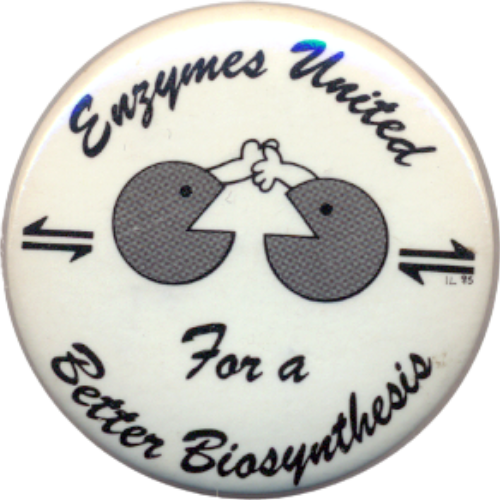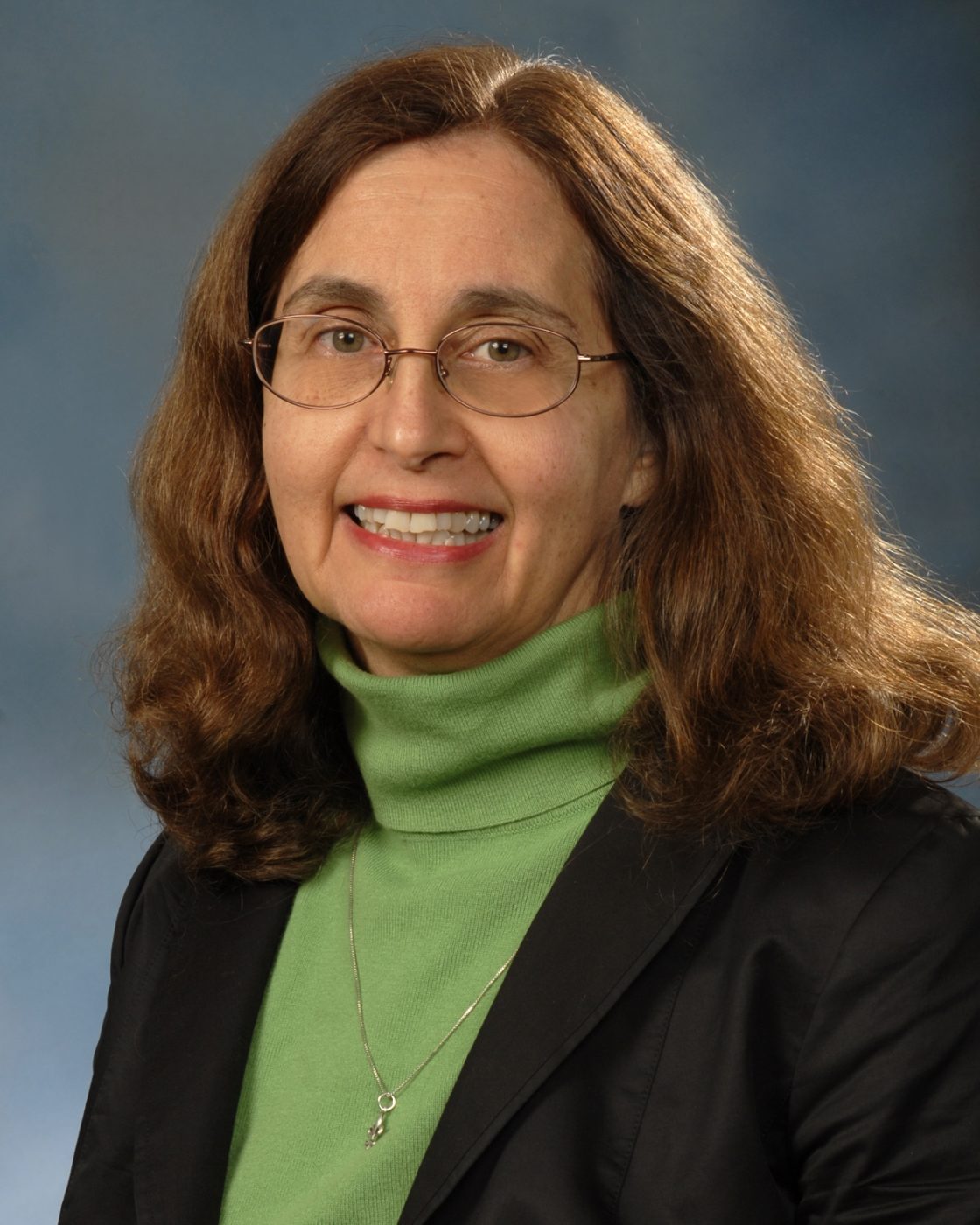
Iris Lindberg, Ph.D.
Principal Investigator
Dr. Lindberg did her undergraduate work at the University of California-Berkeley, and graduate work at the University of Wisconsin-Madison. She then performed postdoctoral research at NIH for three years before assuming an assistant professorship in the Department of Biochemistry and Molecular Biology at Louisiana State University Health Sciences Center in New Orleans, where she rose through the ranks to professor. Two years after Hurricane Katrina, in 2007, Dr. Lindberg moved the laboratory to the University of Maryland School of Medicine in Baltimore, where she is now a professor in the Department of Neurobiology. A complete CV can be found by clicking here.
The focus of the work in the Lindberg laboratory is proteostatic control of secretory pathway biochemistry and cell biology, i.e., the folding, maturation, and packaging of neuronal secretory proteins as well as extracellular proteostasis. While historically the laboratory emphasis has been on proteolytic maturation of secreted signaling proteins, currently we work on proteostatic mechanisms in neurodegeneration, including natural chaperone interactions involved in the deposition of aggregated proteins in Alzheimer’s and Parkinson’s diseases. For additional details, please see our research page.
Please direct email to ilindberg@som.umaryland.edu.
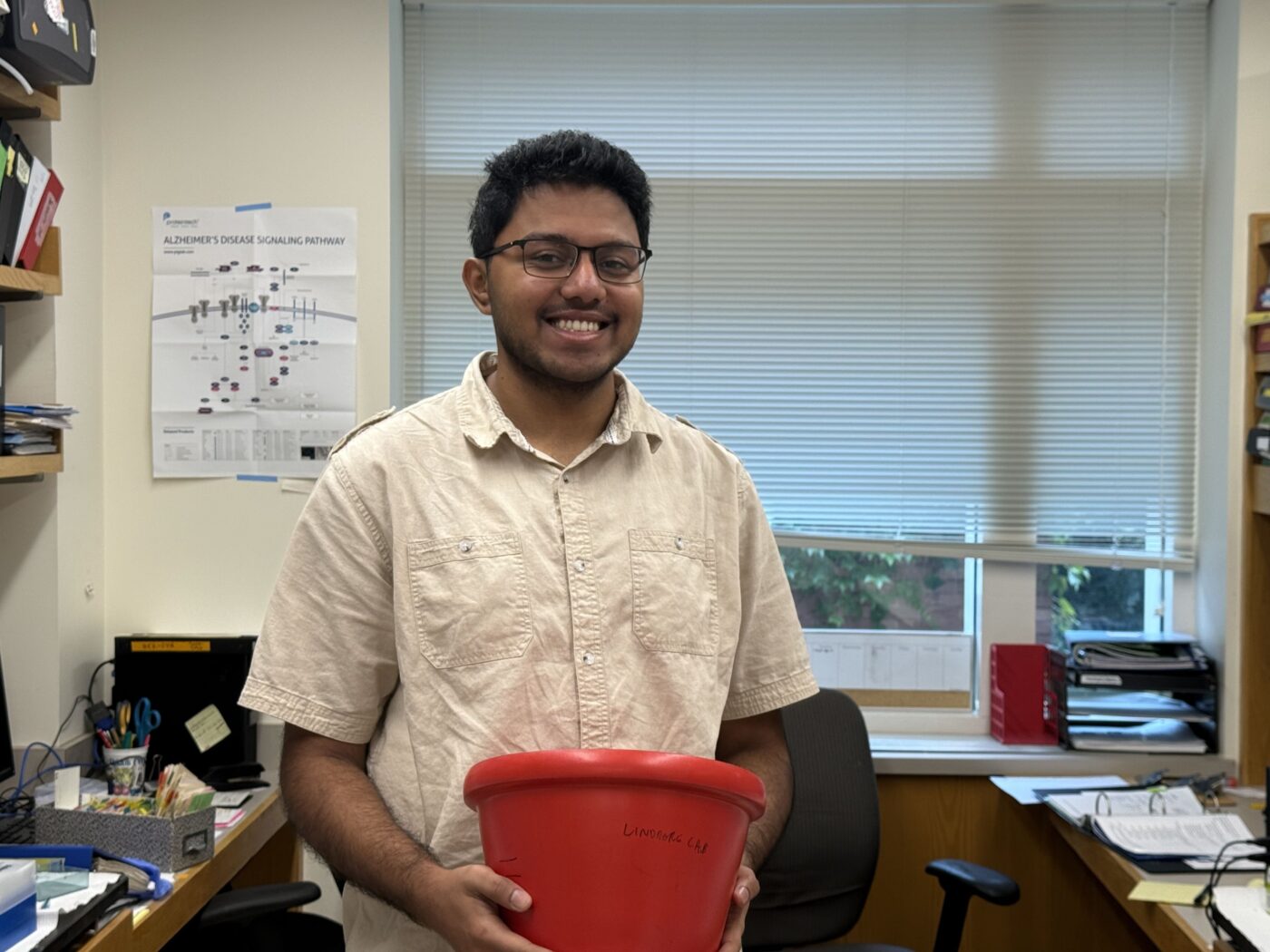
Pavankumar Umashankar
Research Technician (2025-present)
Pavan, a UMBC biochemistry graduate, is working on proSAAS expression in human induced pluripotent stem cells and their differentiation into dopaminergic neurons.
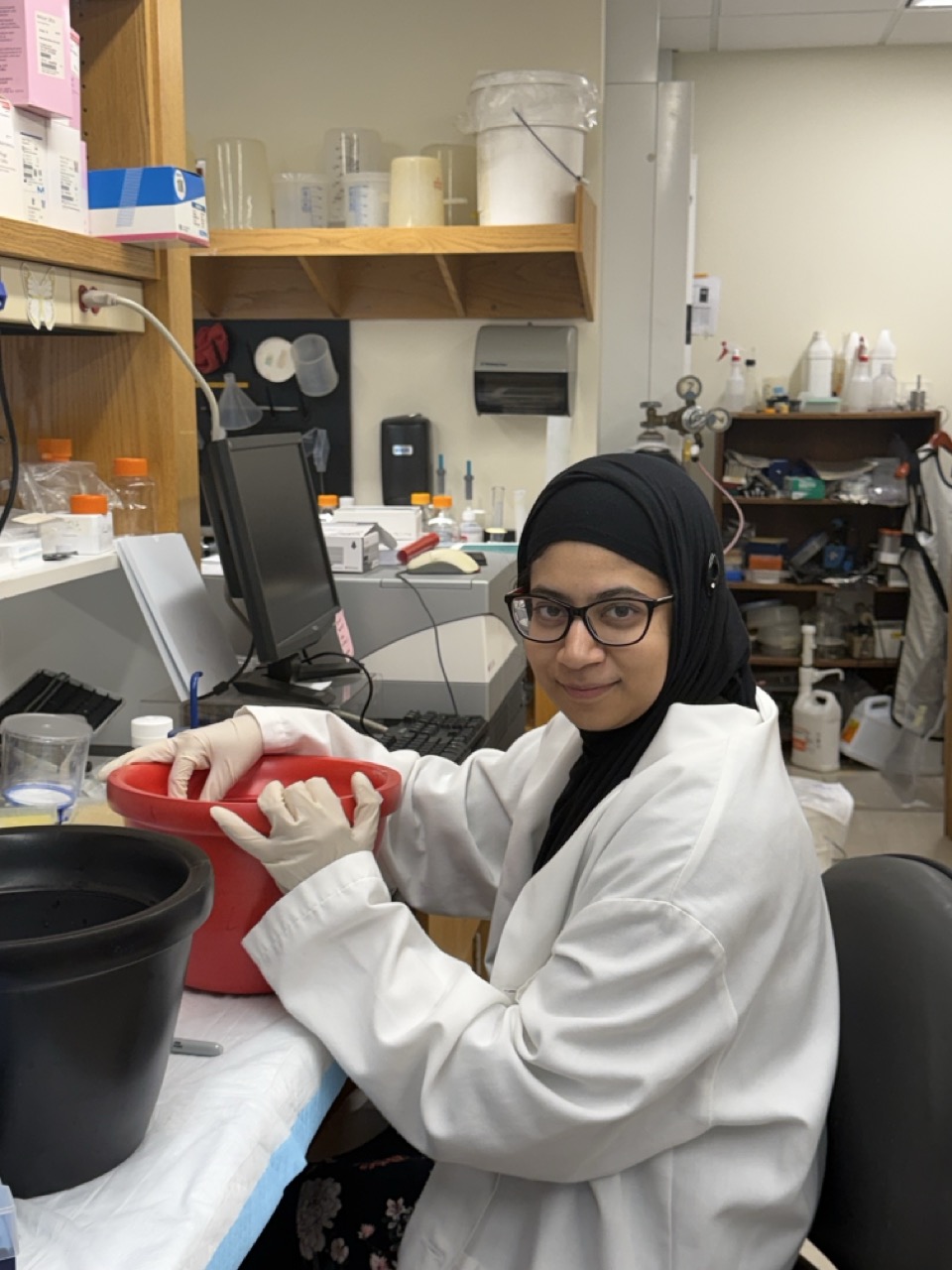
Nazia Nora
Research Intern (2025-present)
Nazia, a UMBC biochemistry senior, is working on locating proSAAS in exosomes and purifying LARALL, a conserved central domain within proSAAS.
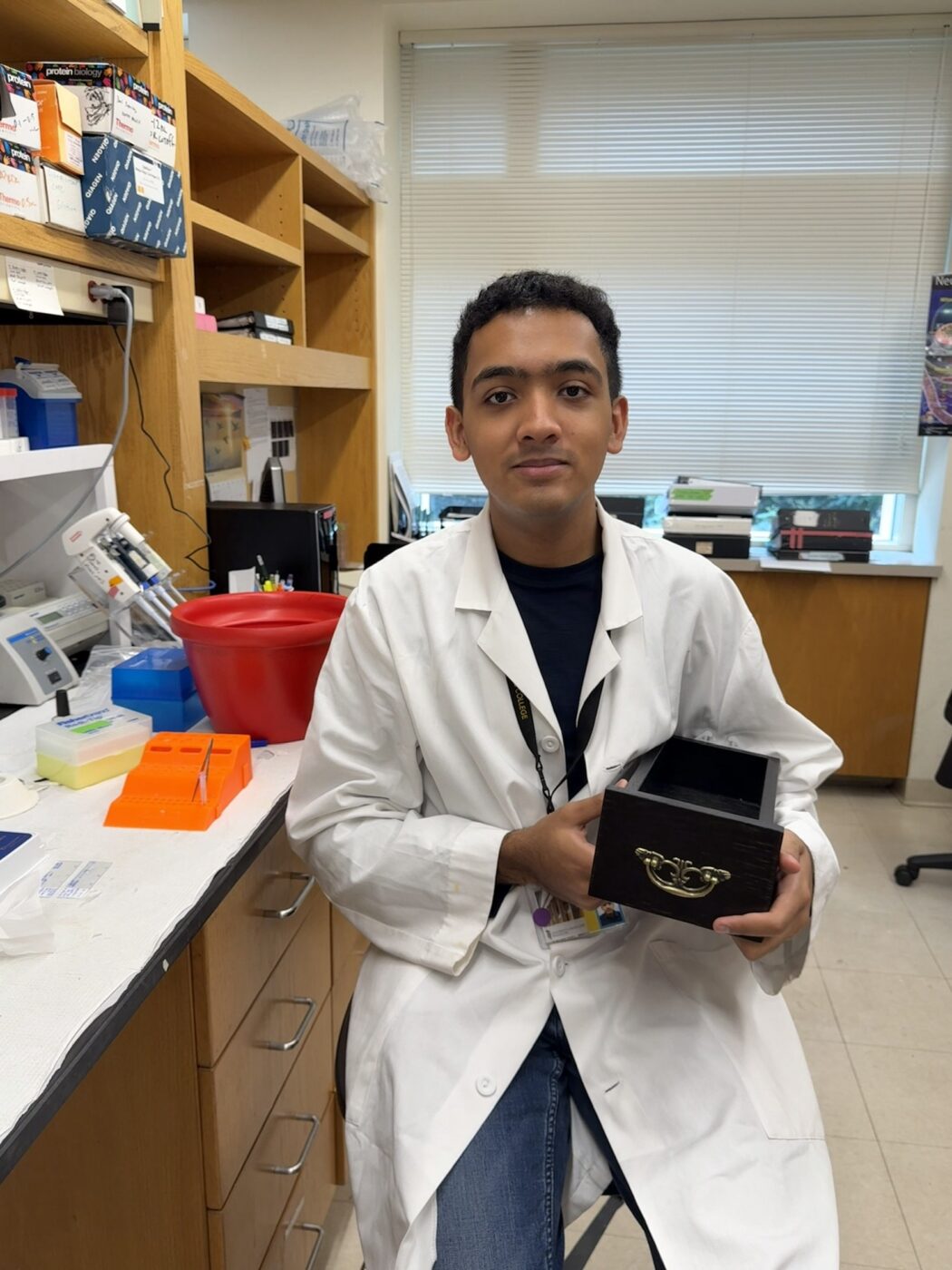
Rishi Nixon
Research Intern (2025-present)
Rishi, a UMBC biology senior, is working on the impact of proSAAS expression on alpha-synuclein uptake and phosphorylation, as well as proSAAS’ role in the secretory pathway.

Lindberg Lab (mid-2019)
The lab in Baltimore at the University of Maryland School of Medicine in 2019, eating cookies!

Costa Lab (mid-80s)
A tiny portion of the Costa Lab at NIH taken at Man Emerging, a sculpture that is no longer located where it was then: on Hains Point in Washington, D.C.
The Lindberg Lab-Baltimore
University of Maryland School of Medicine (2007-present)
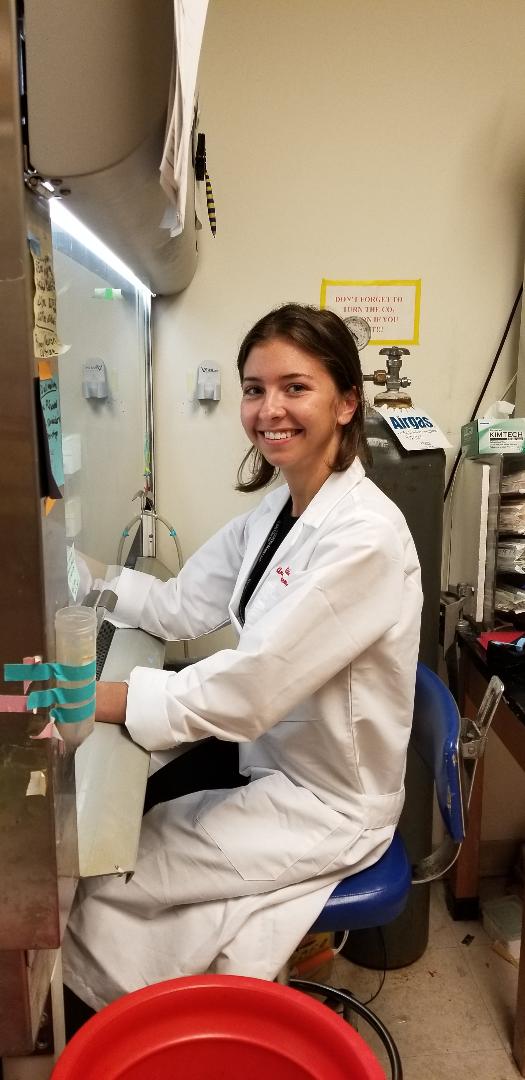
Samira Mitias
Research Technician (2022-2024)
Sam, a UMD cell biology graduate, studied proSAAS effects on amyloid formation, both in the AD model mouse as well as in cell culture. She joined UMB’s graduate program in neuroscience.
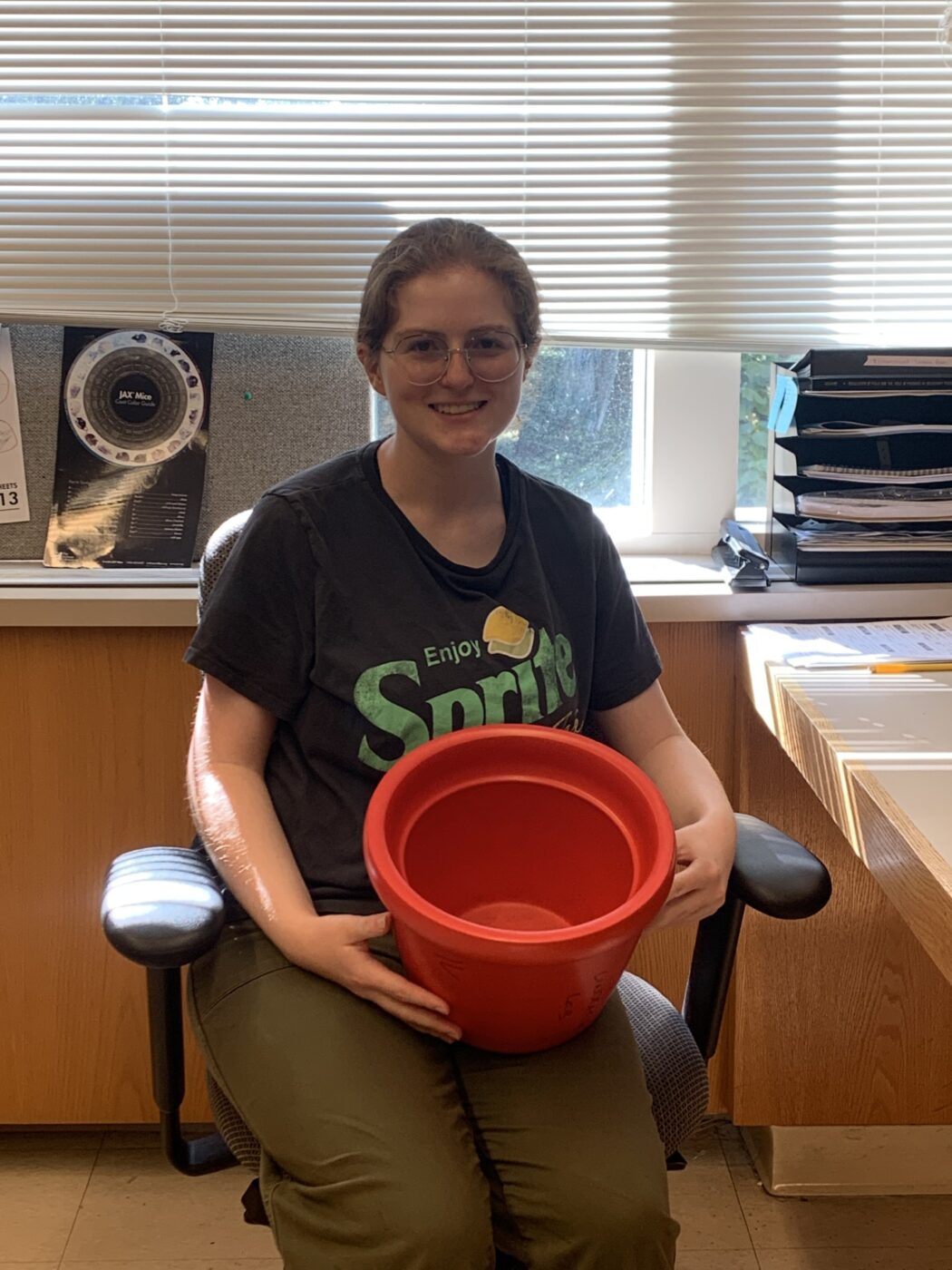
Madison Yorkowski
Research Intern (2023-2024)
Madison, a UMBC neuroscience undergraduate, studied proSAAS and Abeta fibrillation in the lab. She graduated magna cum laude from UMBC in 2024.

Favour Nwogu
Research Intern (2024)
Favour, a UMBC bioinformatics undergraduate, worked on cloning of proSAAS-secreting cells.

Nicholas Schaffer
Research Intern (2021-2024)
Nick, a UMBC biology/computer science undergraduate, studied proteins to which proSAAS binds in the secretory pathway and led a project on retinal proSAAS. After graduating from UMBC, he accepted a research position in Dr. Tom Jhou’s lab in the UMB Neurobiology Department, and will move to a new research position at Johns Hopkins University in 2025.
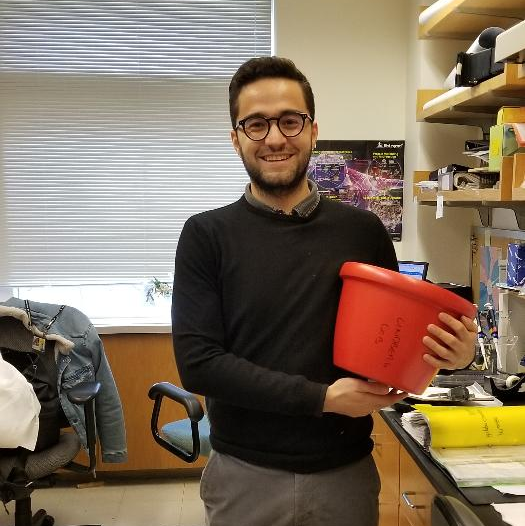
Mohammad Shahrestani
Visiting Research Fellow (2023)
Mohammad, a visiting medical student from Rome on an Erasmus fellowship, studied the function of LARALL, a central domain within proSAAS. Upon receiving his MD summa cum laude, he joined the University of Miami’s McKnight Brain Institute to complete his postdoctoral fellowship in gerontology.
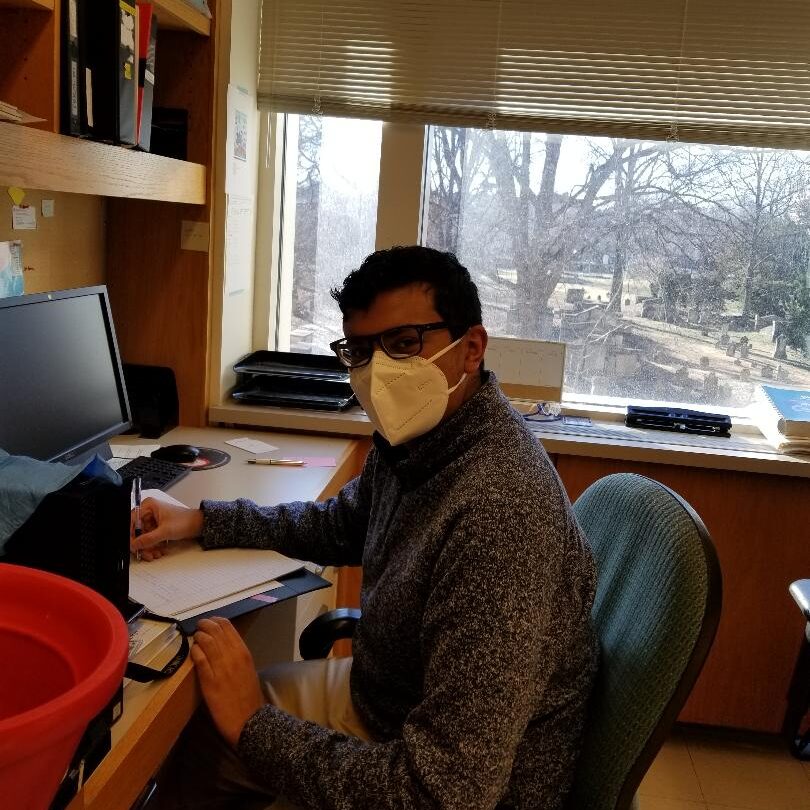
Bilal Qamar
Research Intern (2022)
Bilal, a UMBC biology and information systems undergraduate, studied the biochemical basis for proSAAS chaperone action with Dr Kriti Chaplot.
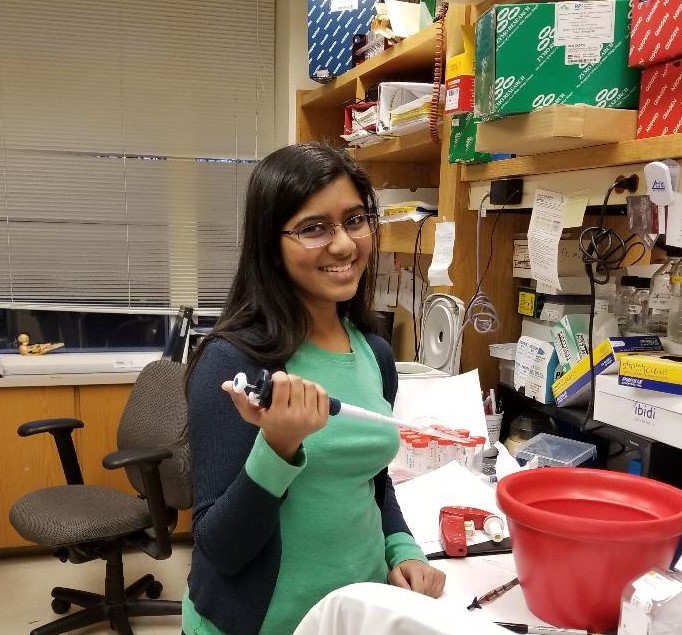
Kriti Chaplot, Ph.D.
Postdoctoral Research Fellow (2019-2022)
Kriti completed her Ph.D. from the Indian Institute of Science Education and Research and joined the lab to study chaperone-mediated mechanisms in neurodegeneration. She moved to a research position at the University of California-San Francisco in 2022.
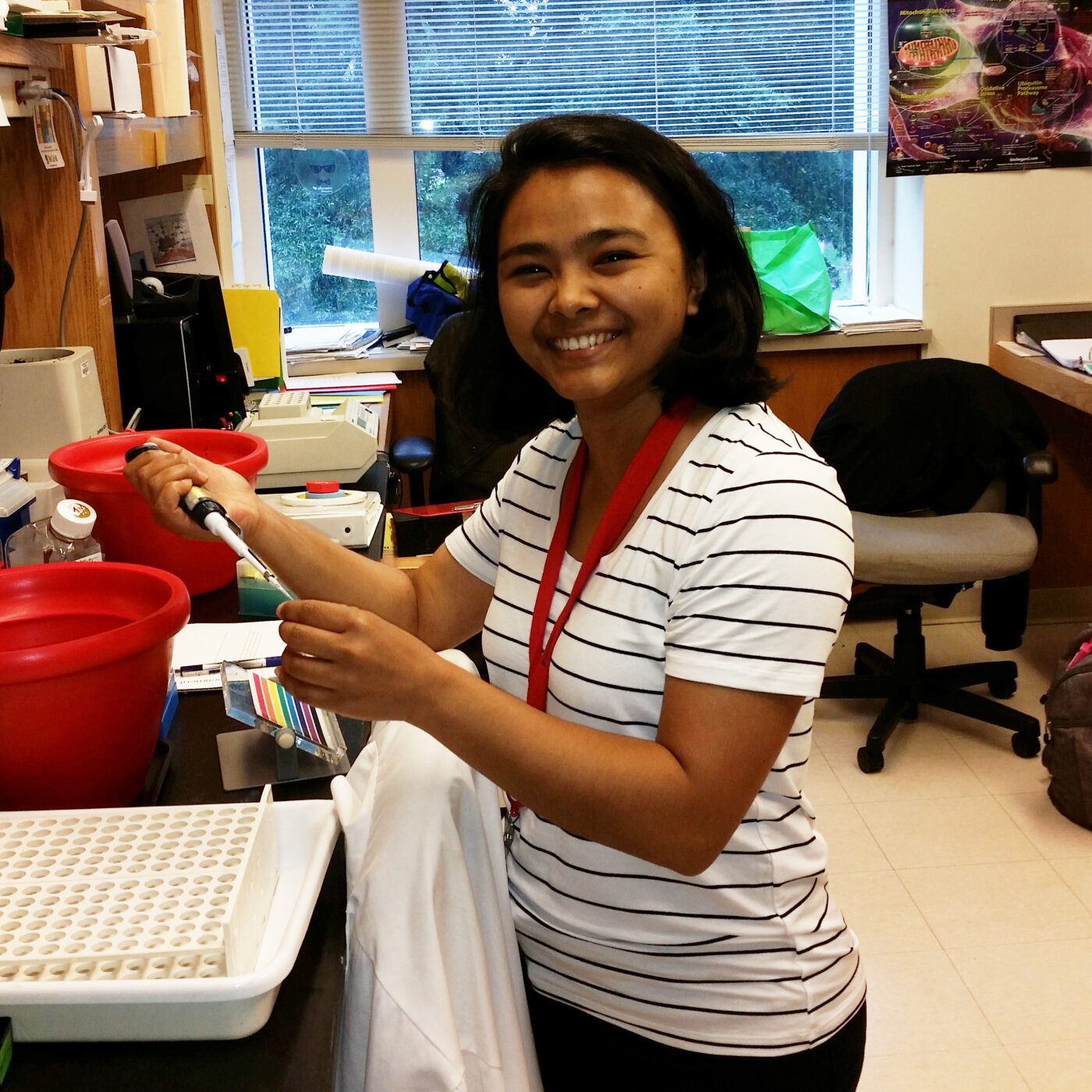
Manita Shakya, Ph.D.
Postdoctoral Research Fellow (2018-2022)
Manita completed her Ph.D. from the University of Louisiana Monroe and joined the lab to study the cell biology of PC1/3 mutants and the effects of cell stress on the proSAAS chaperone. Subsequently, she accepted a research position in Dr. Alison Scott’s lab in UMB’s Microbiology Department.
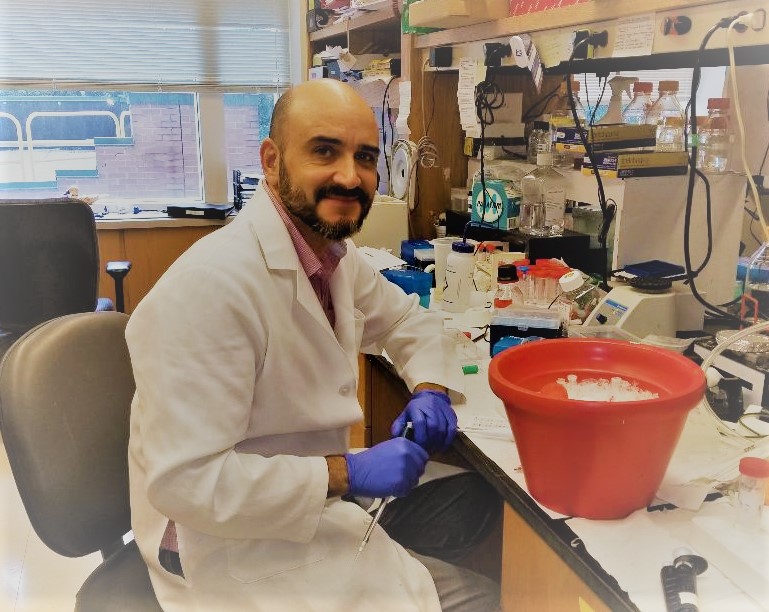
Juan Ramon Peinado, Ph.D.
Visiting Professor (2013, 2019-2020)
Postdoctoral Research Fellow (2003-2004)
Juan completed his Ph.D. from the University of Cordoba and completed his postdoctoral fellowship in our lab in 2004. He returned as a visiting professor from his position on the faculty of the University of Castilla-La Mancha in 2013 to study islet amyloid peptide fibrillation as well as prohormone convertase 1/3 maturation and returned on sabbatical in 2019 to study proSAAS as a neural chaperone in various cell-based systems. He has since held several high-profile roles in Spanish academia and was recently named Vice Dean of the Faculty of Medicine of the University of Castilla-La Mancha.
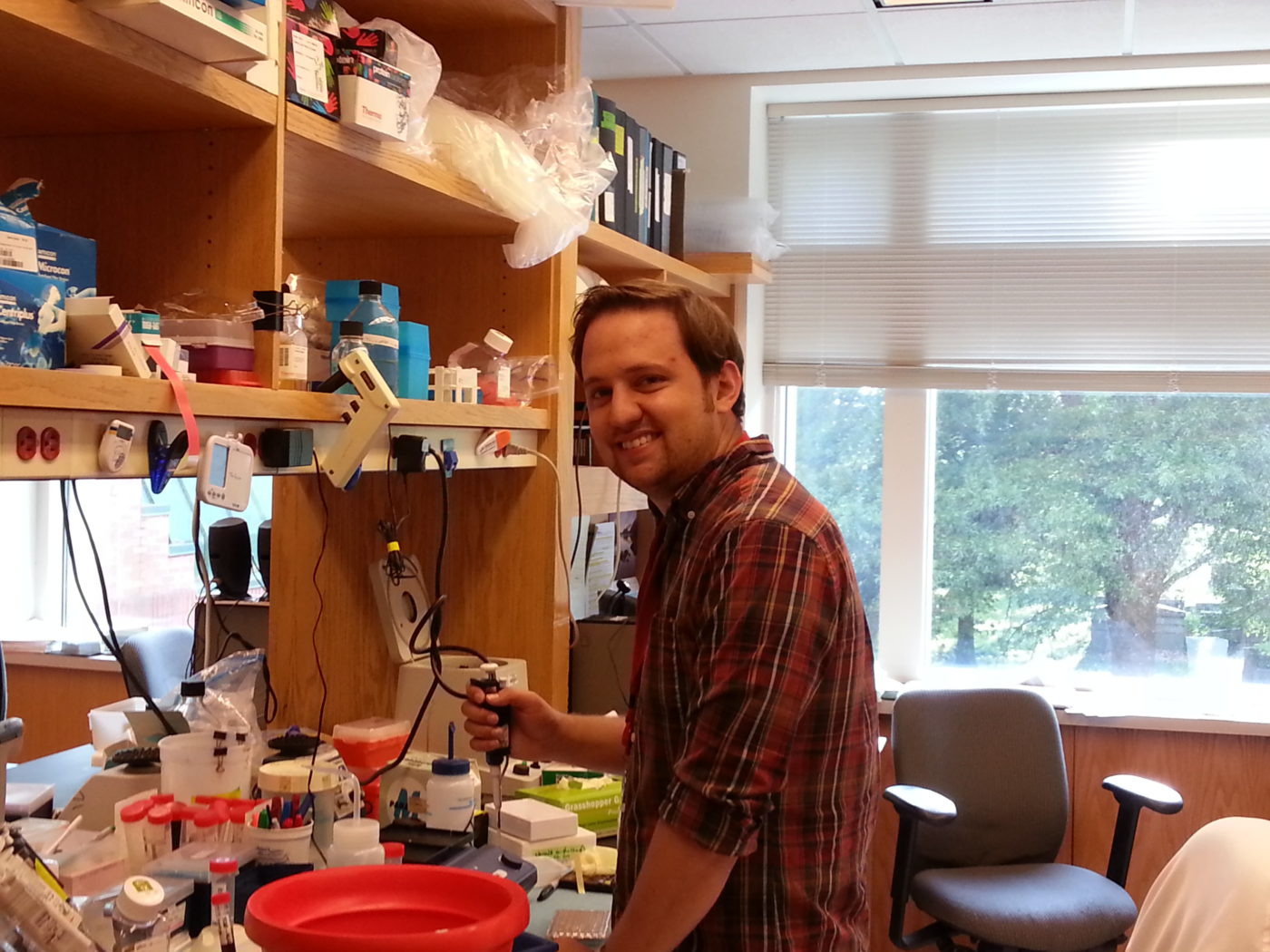
Tim Jarvela, Ph.D.
Postdoctoral Research Fellow (2015-2020)
Tim received his Ph.D. from Carnegie Mellon University and joined our lab to study secretory chaperones’ role in Parkinson’s and the relationship between PCSK1 gene variants in obesity and diabetes. He then moved to a senior research position at a biotech startup in Montgomery County, Maryland.
Taha Yildirim
Visiting Research Fellow (2019)
Taha, a visiting medical student from Turkey, studied the role of the proSAAS and 7B2 secretory chaperones in dealing with endoplasmic reticulum stress with Manita Shakya. Upon returning, he left Turkey to accept a research position at Simon Fraser University in Canada.
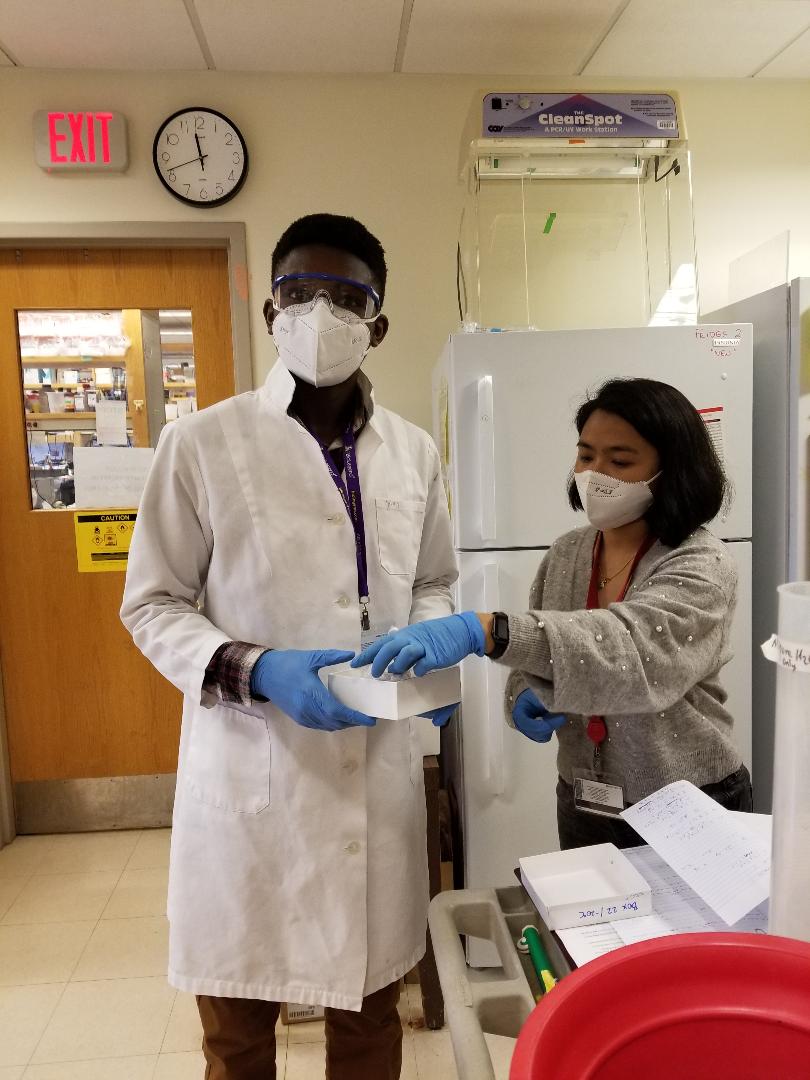
Praise Apanisile
Research Intern (2019)
Praise, a high school student on an internship from the Howard County Biotechnology Academy, studied the role of the proSAAS chaperone in hippocampal synapse protein homeostasis with Manita Shakya. After graduating, he attended the University of North Carolina-Chapel Hill as a Chancellor’s Science Scholar.
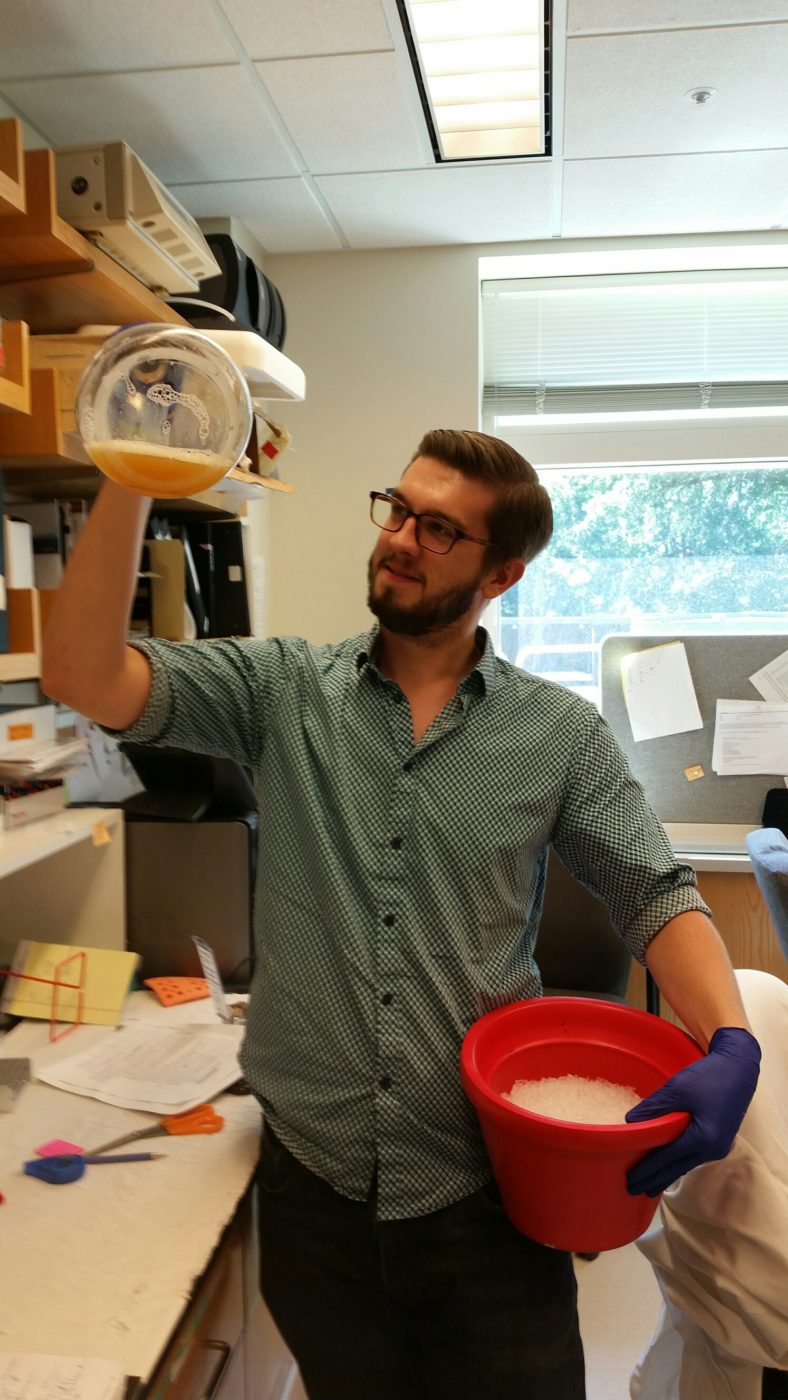
Josh Ostovitz
Graduate Research Assistant (2018-2019)
Josh, a UMB master’s student, rotated in the lab to study synuclein cell-to-cell transfer in the presence of different forms of proSAAS. Upon completing his degree, he was offered a position at UMB’s Core for Translational Research in Imaging.
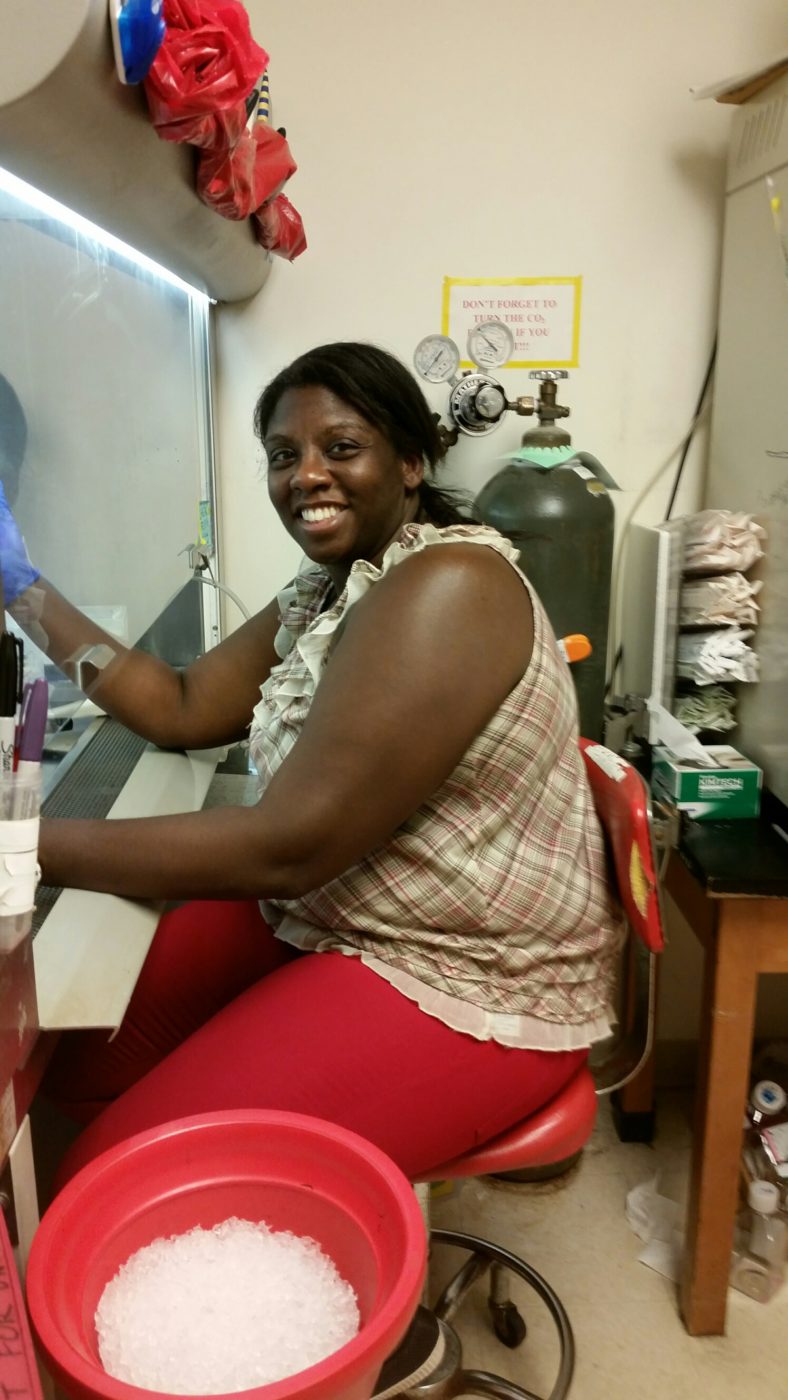
Nikki Kellerman
Graduate Research Assistant (2016-2019)
Nikki, a UMB master’s student, rotated in the lab to work on creating 7B2 and proSAAS knockout endocrine cell lines using Crispr/Cas9 and study their biological effects. She since began teaching science for Montgomery County Public Schools.
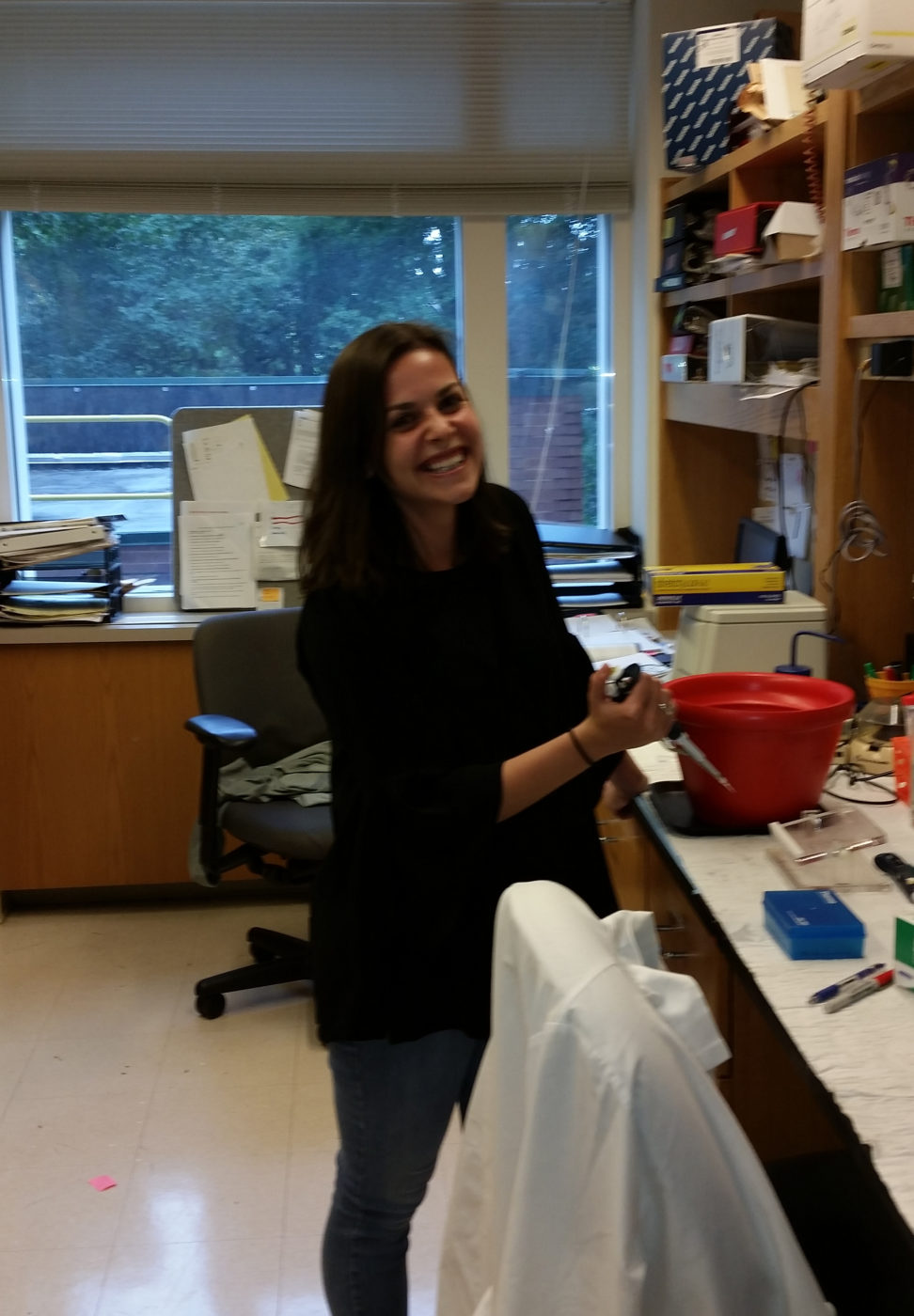
Hannah Kass
Research Fellow (2016-2019)
Hannah, a UMB medical student, studied the structure and function of various proSAAS proteins which function as secretory chaperones, both in fibrillation assays and in hippocampal neurons. She received her MD and was matched into the pediatric residency program at Cohen’s Children’s Medical Center in New York.
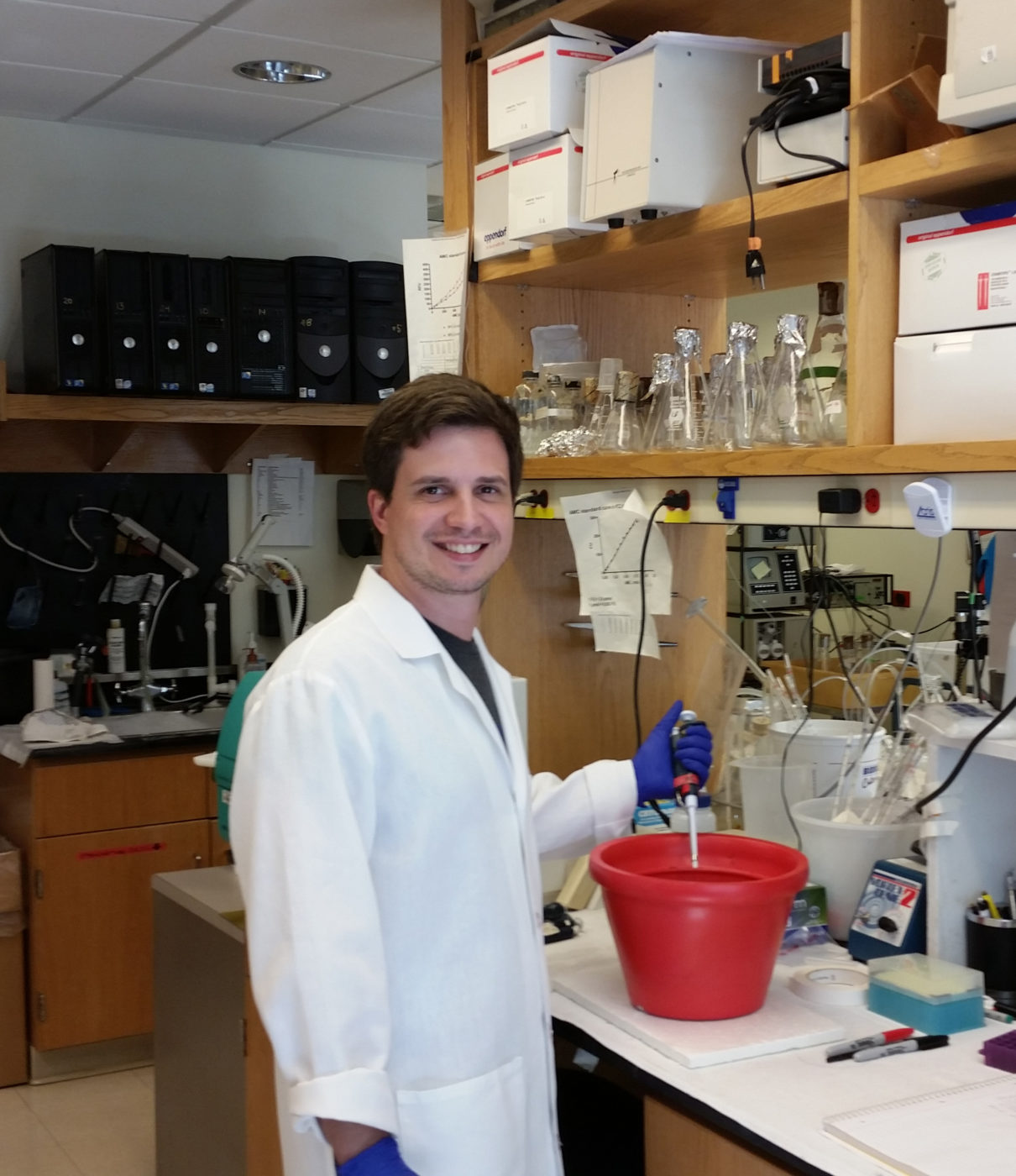
Tomas Bachor, Ph.D.
Postdoctoral Research Fellow (2017-2018)
Tomas received his Ph.D. from Austral University in Argentina and joined our lab to study the expression of peptides and chaperone proteins in cells and mice expressing a common human PCSK1 polymorphism. He moved to another research position at the University of California-San Francisco.
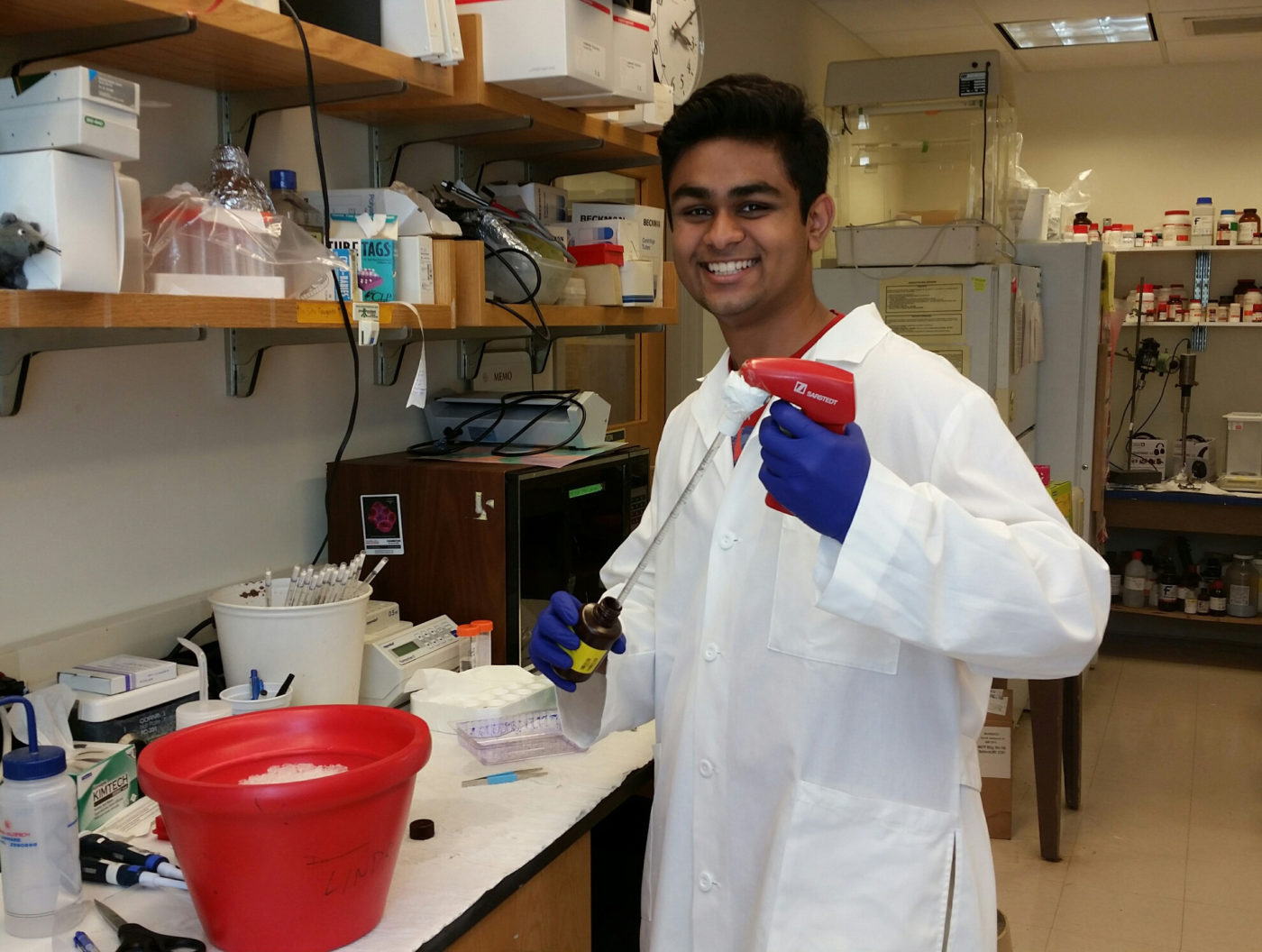
Aadit Mehta
Research Intern (2017)
Aadit, a high school student from Salisbury, worked on perfecting our hippocampal primary cell model. After graduating, he completed George Washington University’s BS-MD program summa cum laude and matched into neurosurgery residency at University of Texas Health Sciences Center.
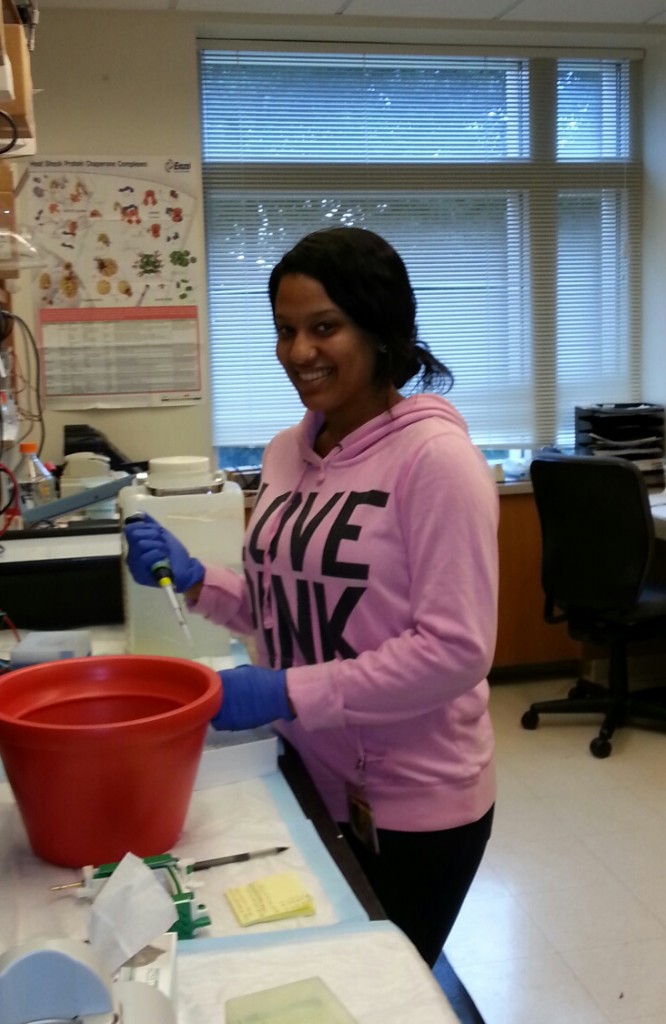
Keirra Dillard
Graduate Research Assistant (2015-2016)
Keirra, a UMB master’s student, studied human PCSK1 mutations. After graduating, she was offered a research position at Virginia Commonwealth University.
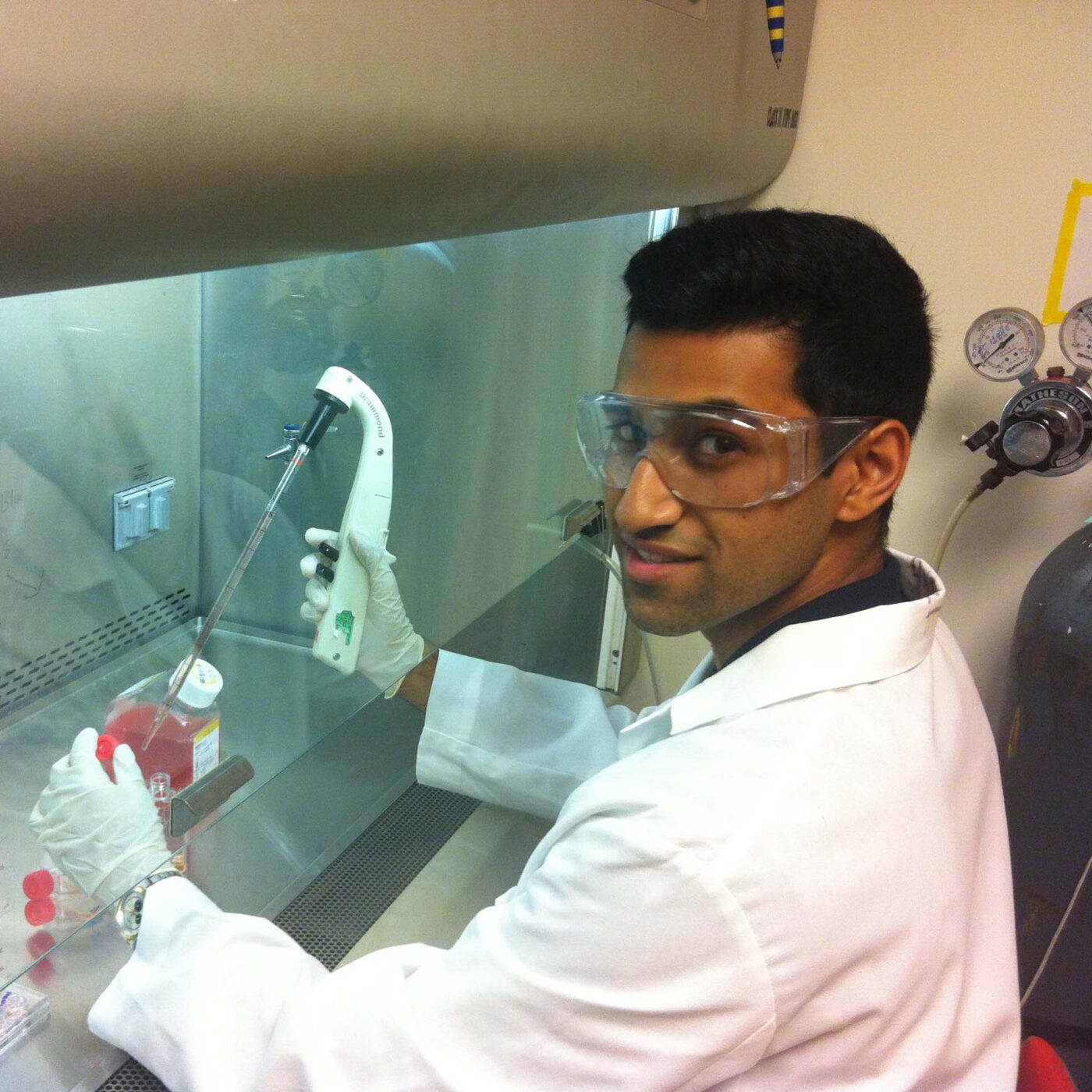
Nevin Varghese
Research Intern (2015-2016)
Nevin, a UMBC undergraduate, studied the role of chaperone proteins in synuclein aggregation in Parkinson’s disease with Tim Jarvela. After graduating magna cum laude from UMBC, he was admitted to UMB’s MD program, matched into residency at Thomas Jefferson, and pursued a gastroenterology fellowship in New Jersey.
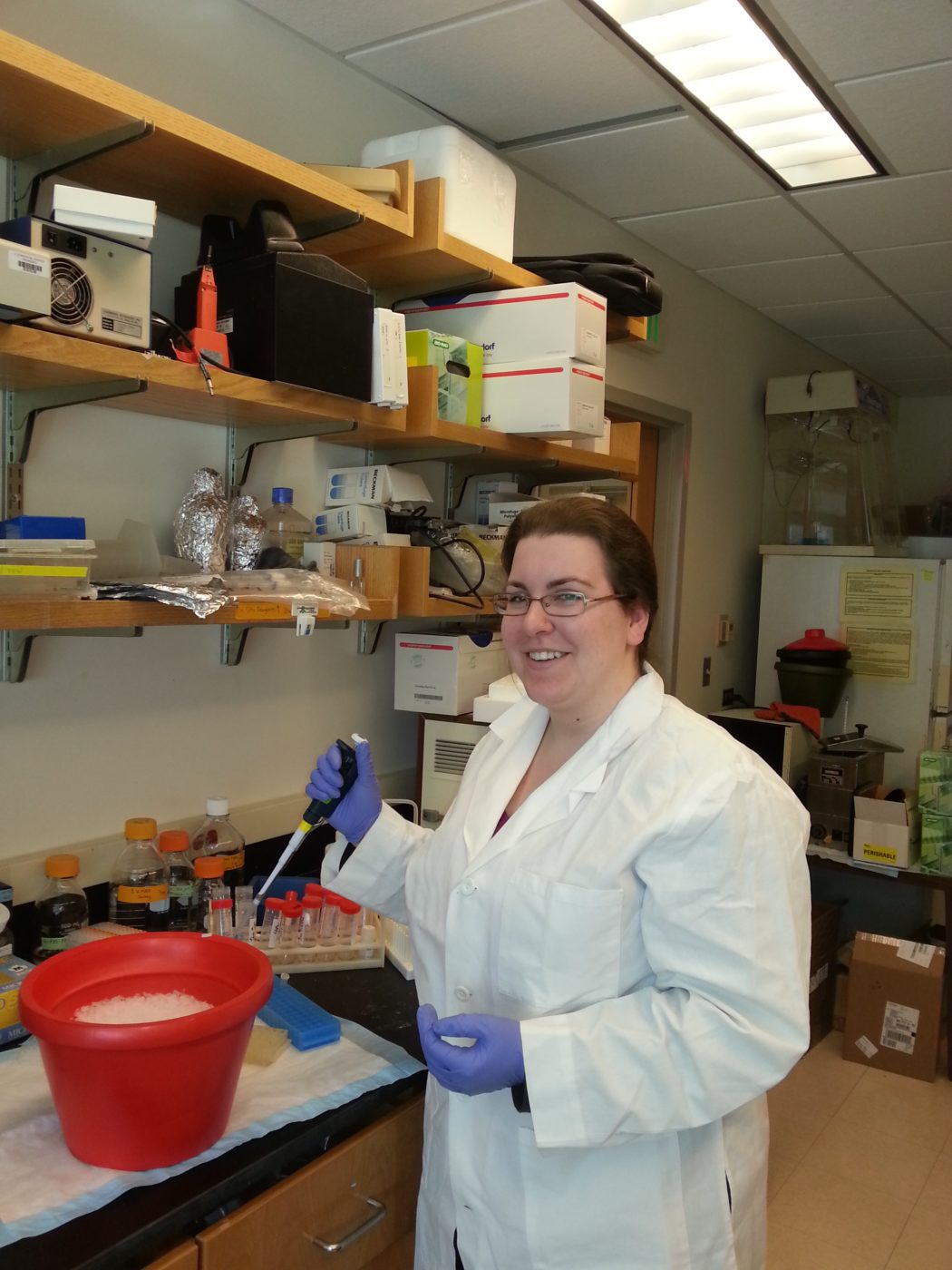
Alex Winters
Graduate Research Assistant (2013-2016)
Alex, a UMB genetics Ph.D. student, studied human PC2 SNPs for their activity and expression. After completing her Ph.D., she went on to a postdoctoral fellowship at Johns Hopkins.
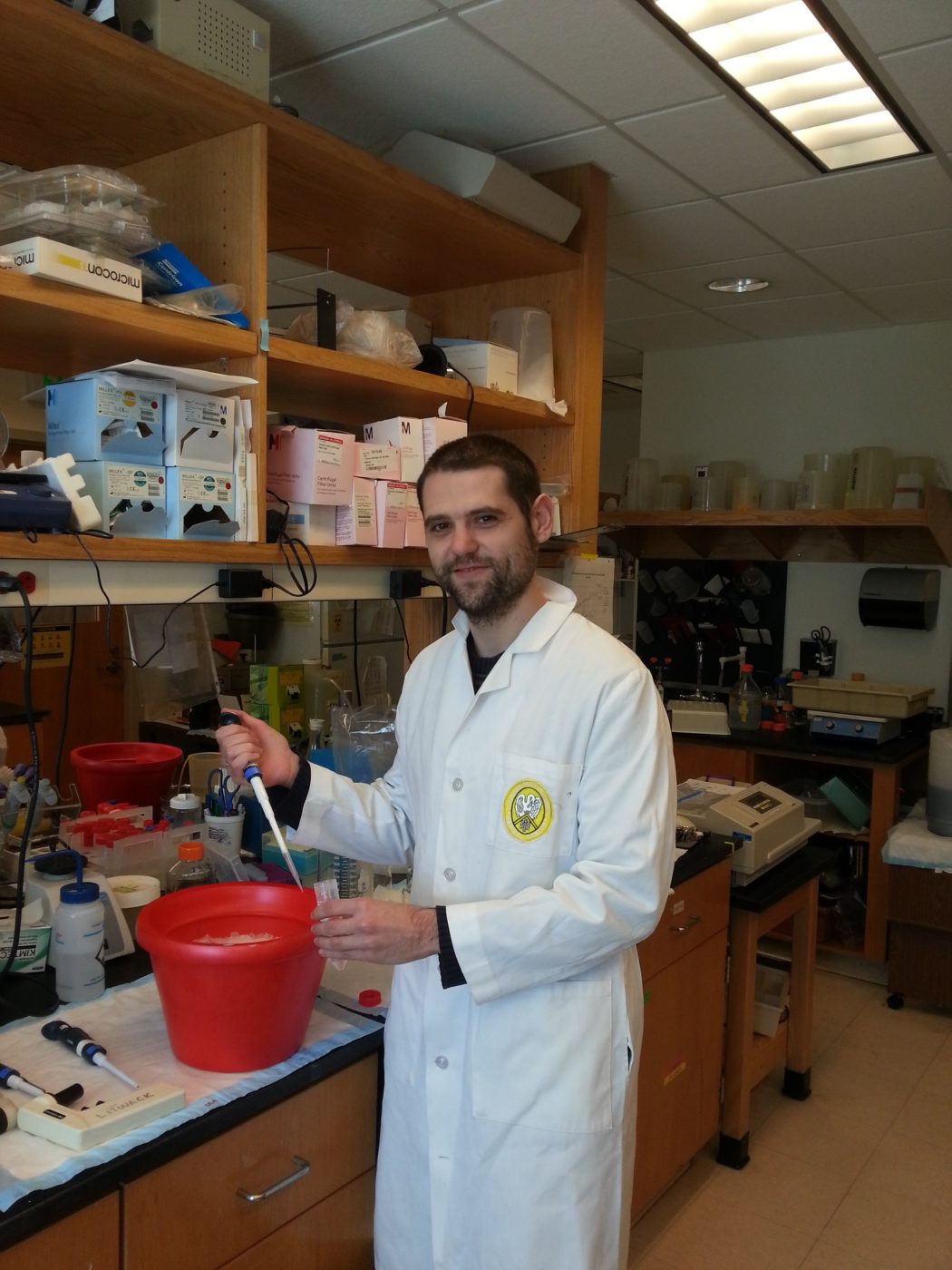
Bruno Ramos Molina, Ph.D.
Postdoctoral Research Fellow (2014-2015)
Bruno received his Ph.D. from the University of Murcia in Spain and joined the lab to study the structure of the proPC2-7B2 complex, PC inhibitors active in cell culture, and threonine phosphorylation of 7B2 by FAM20C. He was offered a lab at his alma mater, since becoming a full professor and group leader at the University of Murcia.
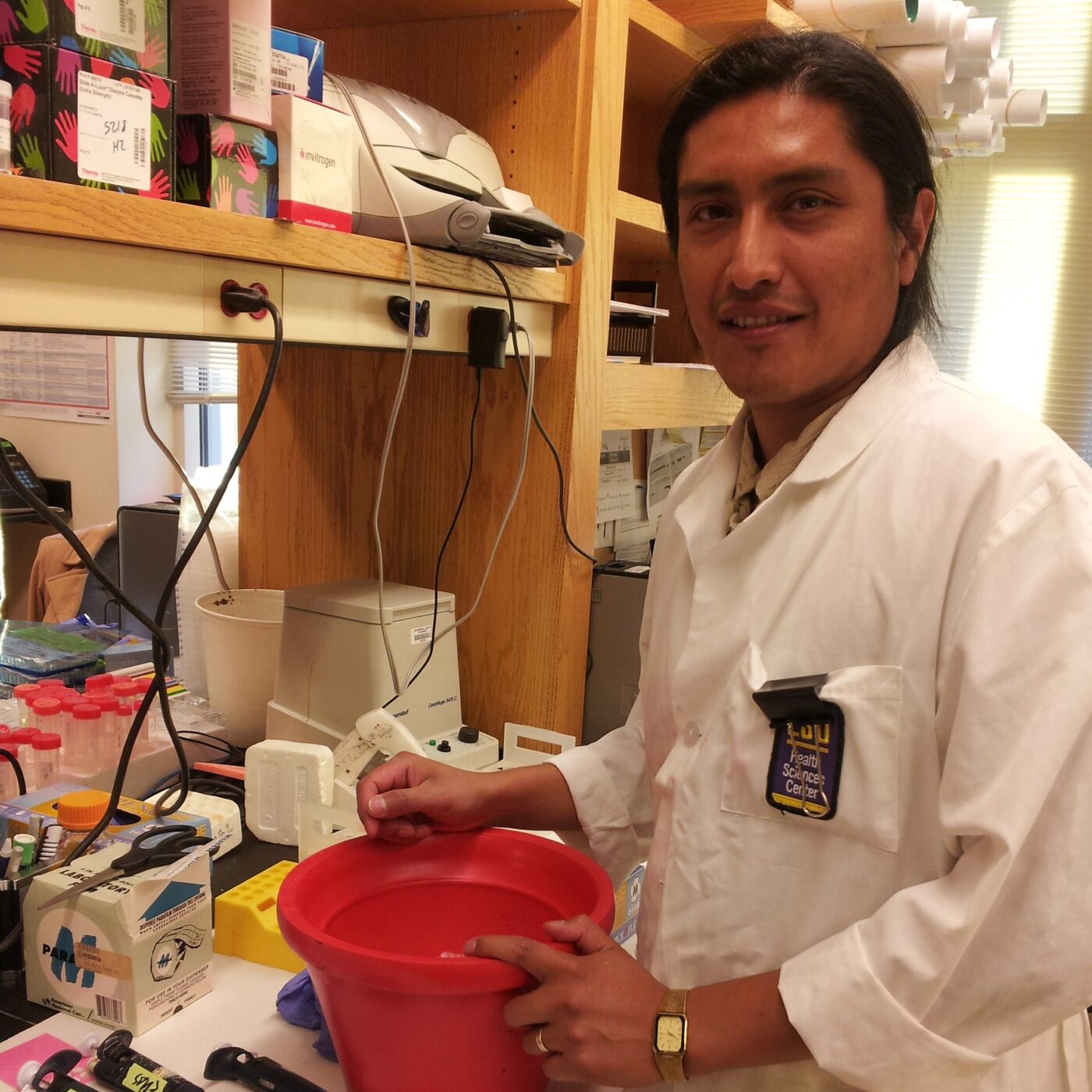
Elias Blanco, Ph.D.
Postdoctoral Research Fellow (2013-2015)
Elias received his Ph.D. from the Pontificial Catholic University of Chile and joined the lab to study new PC1/3 mutants discovered in patients with severe endocrine and gastrointestinal dysfunction and how PC1/3 mutations affect activity and trafficking. He accepted a faculty position at the University of Antofagasta in Chile.

Hong Weng Pang
Research Technician (2013-2015)
Hong, a Towson biochemistry graduate, studied the cell biology of FGF23. He was admitted to his Ph.D. program at the University of Miami Miller School of Medicine, completed his postdoctoral fellowship at Harvard Medical School, and accepted a position as a business development manager at a biotech company in Boston.
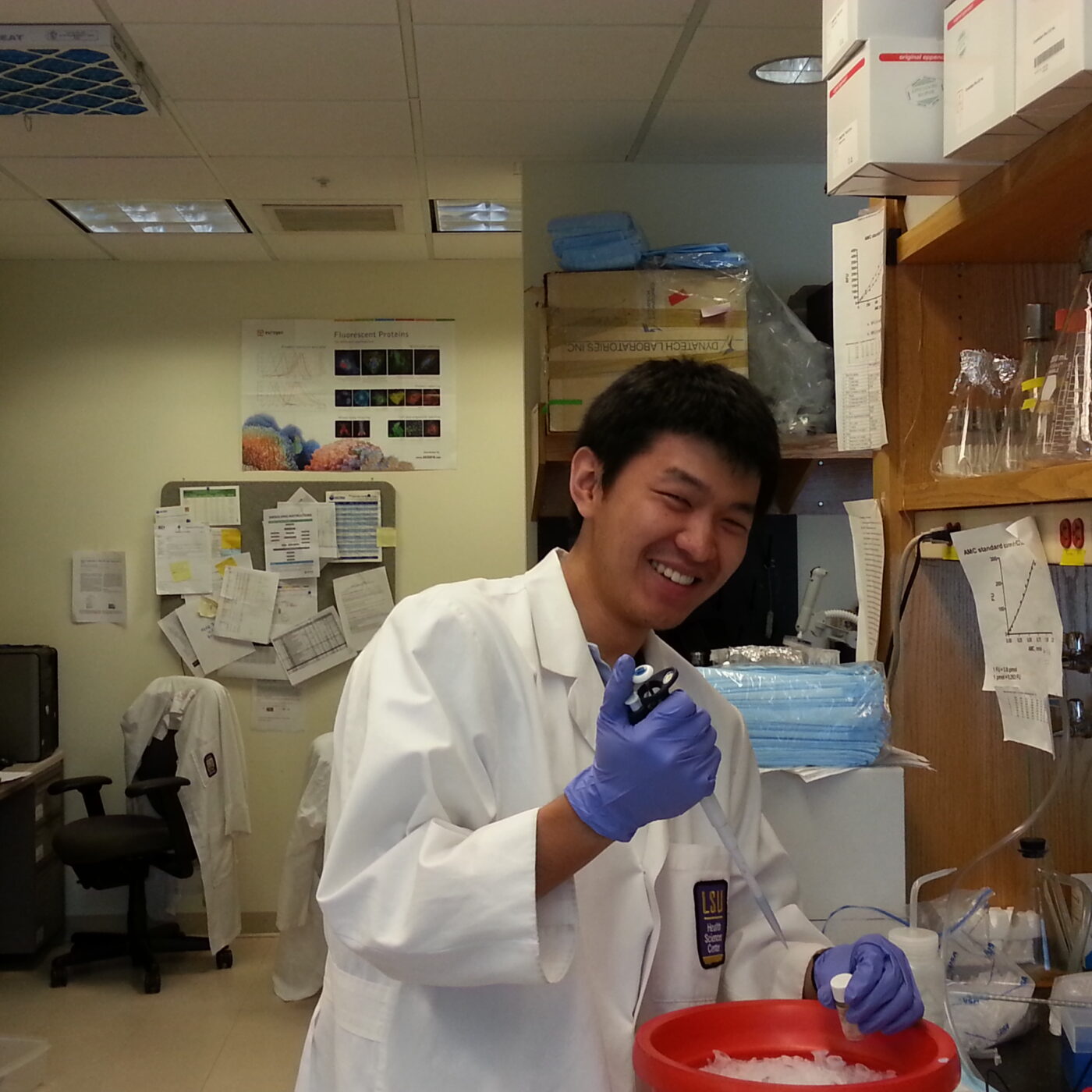
Kevin Li
Research Technician (2012-2015)
Kevin, a Washington University neuroscience graduate, studied the post-translational processing of FGF23. He was admitted to the Washington University School of Medicine in St. Louis, returned to Maryland to complete his residency at UMMC, and then joined the faculty of Washington University School of Medicine once more.

Yogikala Prabhu, Ph.D.
Postdoctoral Research Fellow (2011, 2013)
Yogikala received her Ph.D. from the University of Cologne in Germany and joined our lab to study a mouse PC1/3 mutation that leads to obesity and multiple endocrinological defects. She went on to a senior role in technology transfer at NIH.

Hiroyuki Yamamoto, Ph.D.
Visiting Professor (2012-2013)
Hiro visited the lab from the faculty of the University of Shizuoka in Japan to study the biosynthesis of FGF23 in osteocytes in order to determine how bioactive precursors from non-endocrine cells are converted to active forms in the extracellular milieu. Since then, he has since moved to Aichi Shukutoku University.

Valeria Albornoz
Senior Research Technician (2012-2013)
Val, a biochemistry graduate from the University of Chile, studied PC1/3 and the cell biology of FGF23. She accepted a research position in Dr. Mervyn Monteiro’s lab in UMB’s Neurobiology Department.
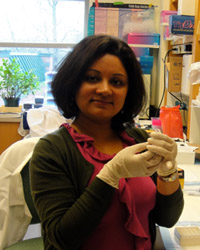
Indrani Dasgupta, Ph.D.
Postdoctoral Research Fellow (2011-2013)
Indrani completed her Ph.D. from the University of Houston and joined the lab to study the structure and function of the neuroendocrine protein 7B2, which plays a critical role in the maturation of proPC2 and also serves as a secretory chaperone. She left the bench in order to pursue her law degree from George Washington University. Indrani now holds a senior role at Sanofi’s patent law division.

Laura Sanglas, Ph.D.
Postdoctoral Research Fellow (2011-2012)
Laura completed her Ph.D. from the Autonomous University of Barcelona and joined the lab to study an isoform of TAFI (thrombin activatable fibrinolysis inhibitor), purify PC2 for crystallographic efforts, and conduct structure-function analysis of 7B2. She moved on to pursue a career in education in Oregon.
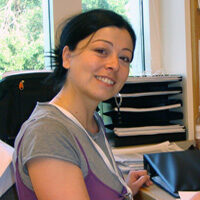
Mirella Vivoli, Ph.D.
Postdoctoral Research Fellow (2010-2012)
Mirella completed her Ph.D. from the Sapienza University of Rome and joined the lab to study novel PC inhibitors and purify PC1/3 for crystallography. She moved to another research position in the UK and has since been awarded a prestigious Marie Skłodowska-Curie fellowship in for mRNA research and nanobody production that contributed to development of the COVID vaccine.
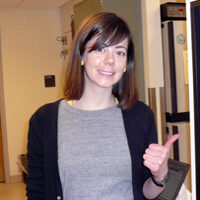
Lindsay Pickett
Research Technician (2010-2012)
Lindsay, an Eckerd College biochemistry graduate, studied biochemistry of naturally-occurring PC1/3 mutations known to be associated with neonatal feeeding disorders, obesity and gastrointestinal disorders. She was admitted to UMB’s Ph.D. program in neuroscience and completed her thesis with Dr. Margaret McCarty in the Department of Pharmacology and Physiology.
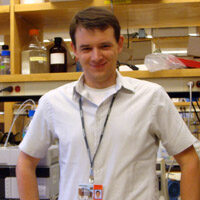
Dr. Michael Helwig
Postdoctoral Research Fellow (2009-2012)
Michael completed his doctorate from the University of Marburg in Germany and joined the lab on a Leopoldina fellowship to study catecholamine modulation of convertase activity, control of proglucagon processing by 7B2 levels, and 7B2 as a neuronal chaperone involved in neurodegenerative disease. He became a principal investigator and then an executive at large German biotech companies.
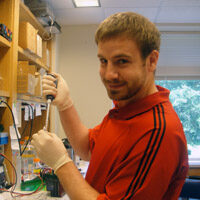
Adam Lick
Research Technician (2009-2012)
Adam, a Dickinson College biochemistry graduate, studied the protein chemistry and cell biology of bone cell FGF23 synthesis as well as purified various novel prohormones. He was admitted to medical school at Louisiana State University Health Sciences Center, completed his residency and fellowship at Washington University, and began practicing cardiology in New Orleans.

Akina Hoshino
Graduate Research Assistant (2007-2012)
Akina, a Vassar College graduate, pursued her thesis on understanding how self-aggregation and/or interaction with its endogenous binding partner, proSAAS, are able to regulate PC1/3 activity. She developed assays to study the aggregation of PC1/3, alpha-synuclein, and Abeta, and was the first to show that 7B2 or proSAAS can reduce the aggregation of secretory proteins other than proprotein convertases. While in our laboratory she published 4 papers and reviews—3 first-author—and received her Ph.D. in 2012. She was offered a research position at the University of Washington and then moved on to become a senior executive at a Seattle stem cell company.
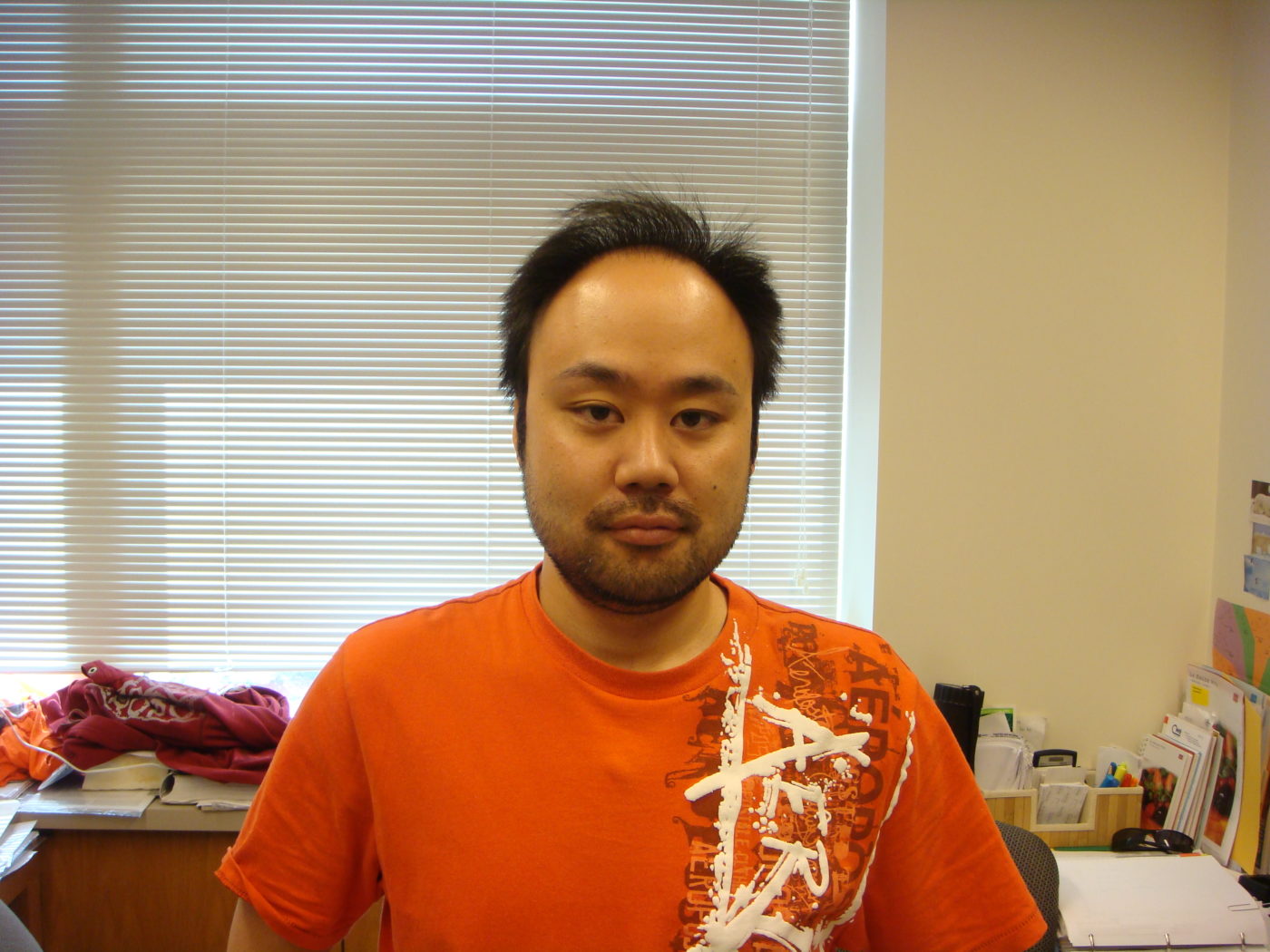
Akihiko Ozawa, Ph.D.
Postdoctoral Research Fellow (2006-2011)
Akihiko received his Ph.D. from Ehime University in Japan and joined our lab to study post-translational modifications of peptide hormones, discovering and characterizing several novel signaling molecules. He accepted a research faculty appointment at Florida Atlantic University.
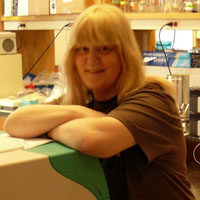
Dorota Kowalska, Ph.D.
Visiting Professor (2005, 2008-2009)
Dorota visited the lab from the faculty of Warsaw University of the Life Sciences in Poland to purify prohormone convertase 1 for the purpose of crystallization. She returned to Warsaw after her one-year assignment to the lab.
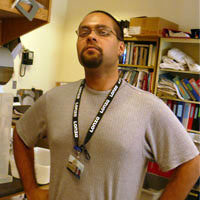
Joseph Miceli
Research Technician (2007-2009)
Joe, a Rensselaer Polytechnic Institute bioinformatics graduate, purified various prohormones, such as POMC, proenkephalin, and prodynorphin, from E. coli. Joe was admitted to the Ph.D. program in biological design at Arizona State University and became an agrichemical scientist.
The Lindberg Lab-New Orleans
Louisiana State University Health Sciences Center (1984-2007)
Sang-Nam Lee, Ph.D.
Postdoctoral Research Fellow (2002-2007)
Sang-nam joined the faculty of Yonsei University College of Medicine in South Korea and then became a senior executive at a pharmabiotics startup.
Magdalena Kacprzak, Ph.D.
Postdoctoral Research Fellow (2003-2005)
Magda joined the faculty of the University of Kuopio in Finland and then accepted a senior research position at Medgen Medical Center in Poland.
Virginie Laurent, Ph.D.
Postdoctoral Research Fellow (1999-2002)
Virginie—now Virginie Laurent-Gyde—joined the faculty of the University of Strasbourg in France.
Jae-Ryoung Hwang, Ph.D.
Postdoctoral Research Fellow (1998-2001)
Jae-Ryoung joined the faculty of Sungkyunkwan University in South Korea.
Yolanda Fortenberry
Graduate Research Assistant (1997-2001)
Yolanda pursued her Ph.D. from the lab and joined the faculty of Johns Hopkins University School of Medicine and then moved her lab to Case Western Reserve University, as a tenured principal investigator.
Maria Sayah
Graduate Research Assistant (2000)
Maria received her master’s degree from the lab and went on to hold a senior research position at Sunovion in Boston.
Angus Cameron
Graduate Research Assistant (1999-2000)
Angus received his Ph.D. from the lab and joined the faculty of the University of Bristol in the UK.
Ekaterina Apletalina, Ph.D.
Postdoctoral Research Fellow (1997-2000)
Ekaterina moved to a senior research position at Boston University.
Laurent Muller, Ph.D.
Postdoctoral Research Fellow (1999)
Laurent became a principal investigator of the French national institute of health (INSERM) at College de France.
Karla Johanning, Ph.D.
Postdoctoral Research Fellow (1994-1998)
Karla started her biotech company and accredited testing labs in Texas.
Xiaorong Zhu, Ph.D.
Postdoctoral Research Fellow (1994-1997)
Xiaorong joined the research faculty of the University of Chicago Pritzker School of Medicine.
Nazarius Lamango, Ph.D.
Postdoctoral Research Fellow (1994-1996)
Nazarius went on to join the faculty of Florida A&M University, becoming a principal investigator, tenured full professor, and university distinguished researcher.
Yi Zhou, M.D.
Graduate Research Assistant (1990-1994)
Yi received his MD from Peking University in China and pursued his Ph.D. from the lab. He went on to become a residency- and fellowship-trained pathologist and to serve as faculty and associate medical director of hematopathology at University of Washington Medicine.
John Mathis
Graduate Research Assistant (1988-1994)
John pursued his Ph.D. from the lab and went on to postdoctoral fellowship at Memorial Sloan Kettering, and became a research scientist at DuPont, and then an investigator at Corteva.
Osvaldo Vindrola, Ph.D.
Postdoctoral Research Fellow (1991-1993)
Osvaldo went on to become a full professor at the University of Puebla in Mexico.
Joseph Irvine, Ph.D.
Postdoctoral Research Fellow (1989-1991)
Joseph earned his MBA from Durham University in England and headed technology transfer for the University of the Highlands and Islands in Scotland for over ten years before retiring.
Steven Roberts, Ph.D.
Postdoctoral Research Fellow (1988-1991)
Steven pursued a career in industry and became a senior executive for Intellia’s and then Precigen’s cell therapy divisions.

